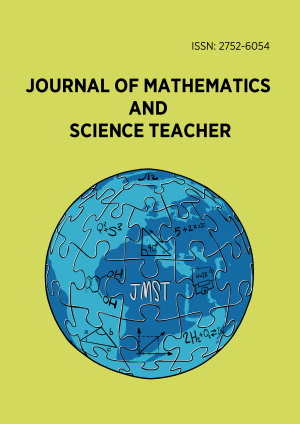Abstract
Periodicity in chemistry is often regarded as a challenging or difficult subject owing to its seemingly abstractness and factors such as ineffective pedagogies, leading to poor achievement and low retention of knowledge. Also, the knowledge of periodicity is fundamental to students’ understanding of a substantial range of chemistry concepts. Therefore, there is a need for the adoption of activity-oriented teaching methods, which have the capacity to not only foster achievement, but also encourage retention. Therefore, this study determined the effects of puzzle game and video-based puzzle strategies on secondary school students’ achievement and retention in periodicity concept in chemistry. Pre-/post-test, delayed post-test control group quasi experimental research design was adopted in the study. Multi-stage sampling procedure was used in the sampling of participants. A total of 183 senior secondary school chemistry students were drawn from six purposively selected public secondary schools in Irewole Local Government Area of Osun State, Nigeria. Two categories of research instruments (stimulus and response) were developed, validated and used to collect data, which were analyzed using analysis of covariance and Bonferroni’s post-hoc test. The findings of the study revealed improved achievement and retention among students exposed to experimental groups (puzzle game and video-based puzzle) than the control group (conventional teaching). Puzzle game appeared to be the most efficacious. It was therefore suggested that teachers should adopt activity-based learning approaches such as puzzle games for teaching periodicity and other chemistry concepts as an attempt to reduce the abstractness perceived by learners and consequently enhance learning outcomes including retention.
License
This is an open access article distributed under the Creative Commons Attribution License which permits unrestricted use, distribution, and reproduction in any medium, provided the original work is properly cited.
Article Type: Research Article
Journal of Mathematics and Science Teacher, Volume 4, Issue 2, 2024, Article No: em061
https://doi.org/10.29333/mathsciteacher/14366
Publication date: 01 Apr 2024
Online publication date: 14 Mar 2024
Article Views: 4231
Article Downloads: 3058
Open Access References How to cite this article
 Full Text (PDF)
Full Text (PDF)